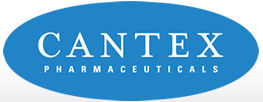预约演示
更新于:2025-05-07
Chemokines
更新于:2025-05-07
基本信息
别名- |
简介- |
关联
135
项与 Chemokines 相关的药物靶点 |
作用机制 CCL2抑制剂 |
非在研适应症- |
最高研发阶段批准上市 |
首次获批国家/地区 日本 |
首次获批日期1994-07-01 |
作用机制 CXCR4拮抗剂 [+1] |
在研机构 |
在研适应症 |
最高研发阶段临床3期 |
首次获批国家/地区- |
首次获批日期1800-01-20 |
靶点 |
作用机制 SDF-1拮抗剂 |
原研机构 |
最高研发阶段临床2期 |
首次获批国家/地区- |
首次获批日期1800-01-20 |
109
项与 Chemokines 相关的临床试验NCT04901741
An Open-label Phase 2 Study of Olaptesed Pegol (NOX-A12) Combined With Pembrolizumab and Nanoliposomal Irinotecan/5-FU/Leucovorin or Gemcitabine/Nab-paclitaxel in Microsatellite-stable Metastatic Pancreatic Cancer Patients
The purpose of this study is to provide a go/no-go decision for a randomized expansion study by assessing the disease control rate (DCR) at 6 weeks for the combination of olaptesed pegol on top of pembrolizumab and (Arm 1) nanoliposomal irinotecan, 5-FU and leucovorin or (Arm 2) gemcitabine and nab-paclitaxel, to assess safety and tolerability and time-to-event endpoints.
开始日期2025-06-01 |
申办/合作机构 TME Pharma NV [+1] |
NCT06210945
A Phase 2, Multicenter, Randomized, Double-Blind, Proof of Biology Study to Evaluate the Safety, Tolerability, and Activity of CM-101 in Patients With Systemic Sclerosis
This study is designed to assess the safety and tolerability of the anti-human CCL24 monoclonal antibody CM-101 in adult patients with systemic sclerosis (SSc). Approximately 45 patients at approximately 40 sites will be randomized in a 2:1 ratio to receive either 10 mg/kg CM-101 or placebo.
开始日期2024-09-01 |
申办/合作机构 |
CTR20233633
一项在膝骨关节炎所致中度至重度疼痛成人受试者中评价GSK3858279 的多中心、随机、双盲、安慰剂对照、剂量探索、II 期研究(MARS-17)
主要目的
表征GSK3858279 与安慰剂相比对膝关节OA 疼痛的有效性
次要目的
研究GSK3858279 与安慰剂相比对膝关节OA 受试者症状的有效性
评价GSK3858279 重复给药的安全性和耐受性
评价GSK3858279 重复给药的PK
三级或探索性目的
表征纵向剂量-暴露-效应关系
研究GSK3858279 重复给药与安慰剂相比对其他有效性指标的影响
研究GSK3858279 重复给药与安慰剂相比对其他患者报告结局(PRO)的影响
评价GSK3858279 重复给药与安慰剂相比的安全性
评估抗GSK3858279 抗体形成(ADA)的可能性
评价重复SC 给药后GSK3858279 的PK 浓度-时间曲线
评价重复SC 给药后的CCL17 特征
开始日期2023-12-05 |
申办/合作机构 |
100 项与 Chemokines 相关的临床结果
登录后查看更多信息
100 项与 Chemokines 相关的转化医学
登录后查看更多信息
0 项与 Chemokines 相关的专利(医药)
登录后查看更多信息
99,575
项与 Chemokines 相关的文献(医药)2025-12-31·Autoimmunity
Identification and validation of susceptibility modules and hub genes in polyarticular juvenile idiopathic arthritis using WGCNA and machine learning
Article
作者: Fan, Jianhui ; Chen, Guoming ; Duan, Hongxiang ; Zhang, Weihua ; Liu, Junfeng ; Wang, Pingxi
2025-12-31·Journal of the International Society of Sports Nutrition
Unveiling the impact of competition weight loss on gut microbiota: alterations in diversity, composition, and predicted metabolic functions
Article
作者: Salmi, Vera M ; Driuchina, Anastasiia ; Ahtiainen, Juha P ; Hintikka, Jukka ; Pekkala, Satu ; Isola, Ville ; Hulmi, Juha J
2025-12-31·Virulence
The inhibitory and anti-inflammatory effects of TMP269 on peste des petits ruminants virus replication
Article
作者: Meng, Xuelian ; Ke, Qunhua ; Sun, Yuefeng ; Wang, Yang ; Qu, Min ; Li, Miaomiao
1,274
项与 Chemokines 相关的新闻(医药)2025-05-04
·小药说药
-01-引言肥大细胞(MC)是存在于我们体内结缔组织中的髓系细胞,含有具有有效炎症介质的粗颗粒,如组胺。长期以来肥大细胞一直被认为与过敏性和自身免疫性疾病的发病机制有关,然而现在人们认识到肥大细胞对肿瘤细胞和肿瘤微环境行为具有决定性的影响,是抗肿瘤免疫的关键协调器、肿瘤基质的调节剂,并且与癌细胞的内在特性有关。然而,它们的作用仍然存在争议,因为MCs可以在不同的肿瘤类型中发挥促肿瘤或抗肿瘤功能,这取决于它们在肿瘤内或肿瘤周围的位置以及它们与肿瘤微环境其他成分的相互作用。因此,肥大细胞是一个未被充分认识但非常有希望的癌症免疫治疗靶点。-02-一、肥大细胞的生物学MCs是来源于骨髓多能干造血细胞的先天免疫细胞,在血液中循环并迁移到外周组织,在组织特异性趋化因子和细胞因子(如干细胞因子和IL-4)、细胞外基质蛋白和粘附分子的作用下发育并分化为成熟肥大细胞。MC分布在身体的不同区域,如上皮细胞、粘膜、胃肠道、产生粘液的腺体以及神经和血管周围区域。在MC表面有多种受体,一旦被它们的配体触发,可以释放各种不同的因子。这些包括预先形成的分子(组胺、类胰蛋白酶、蛋白酶和蛋白多糖)和新合成的脂质介质(白三烯和前列腺素)、细胞因子(IL-4、TNFα、TGF-β、IL-1β)和趋化因子(IL-18、CCL2、CCL4)。预先形成的介质沉淀在MC细胞质中的大颗粒中。每个MC被赋予大约50-200个颗粒,在适当的刺激下,这些颗粒在几秒钟内被输送到细胞外。这个过程被称为MC脱颗粒。肥大细胞存在两种类型的脱颗粒:过敏性脱颗粒,其中整个颗粒内容物迅速释放到细胞外环境;以及分段脱颗粒,颗粒内容物以更有层次,更具体的方式释放。研究最充分的肥大细胞脱颗粒发生机制是暴露于同源抗原后,高亲和力IgE表面受体FcεRI的抗原特异性IgE交联,导致肥大细胞快速脱颗粒。肥大细胞也可以通过其他机制激活,如通过toll样受体、补体蛋白、细胞因子和其他刺激物的损伤相关和病原体相关分子模式。肥大细胞激活、脱颗粒和/或炎症介质分泌的结果包括其他免疫、基质、神经和上皮细胞的激活或吸引,从而导致局部组织微环境的变化,如血管扩张和血管生成,以及全身免疫反应的激活。肥大细胞活化和/或脱颗粒可能以经典的快速方式发生,导致炎症介质的大量释放和剧烈的临床表现,如过敏反应和血管性水肿。然而,随着特定介质的缓慢释放,这些过程也会逐渐发生,导致慢性炎症和局部组织改变。后一种形式的肥大细胞激活在癌症中尤其重要。-03- 二、癌症中的肥大细胞MC在癌症相关领域得到了越来越多的关注。然而,它们的作用具有两面性,在不同的情况下促进或抑制肿瘤的发展。MCs的促肿瘤功能MC可以支持血管生成、炎症和体内平衡,从而支持癌症的发展。MC还释放类胰蛋白酶和糜蛋白酶等蛋白酶,可激活基质金属蛋白酶,降解细胞外基质和肿瘤周围组织,从而促进肿瘤生长、血管生成和转移。此外,MC释放VEGF、PDGF-β和IL-6,促进血管形成、细胞增殖和肿瘤生长。在胰腺癌患者中,MC在肿瘤病灶内的积聚与预后不良相关。在Myc诱导的β细胞胰腺癌小鼠模型中,当MC脱颗粒受到化学抑制时,肿瘤发展和血管生成减少。MCs的抗肿瘤功能肥大细胞在调节肿瘤进展中的一个关键作用是其作为前哨免疫细胞的作用,其释放趋化因子、细胞因子和其他因子,将其他免疫细胞招募到肿瘤微环境中并改变其功能。肥大细胞释放趋化因子,如CXCL10、CLL3和CCL5,它们将CD8+T细胞和CD4+T细胞招募到肿瘤中,它们可以通过TNF-α分泌进一步调节T细胞活性。肥大细胞分泌的组胺有利于特定的辅助性T细胞亚型或T细胞调节反应,这取决于受刺激的受体。活化的肥大细胞也被证明可以上调MHC-II和共刺激分子,作为T细胞的局部抗原呈递细胞发挥作用。总之,肿瘤、基质和免疫微环境中肥大细胞诱导的抗肿瘤和促肿瘤信号的净平衡决定了肿瘤相关肥大细胞如何影响最终肿瘤生长。正确理解这些因素是如何相互作用的,对于研究相关的肥大细胞生物学以及如何将肥大细胞作为改善癌症预后的最佳治疗选择具有重要意义。-04-三、TME中MC与其他免疫细胞的相互作用MCs还可以调节TME中其他免疫细胞的功能,从而影响局部免疫抑制或抗肿瘤免疫。例如,在小鼠肝癌模型中,已经表明活化的MCs可以通过CCL2/CCR2轴促进髓源性抑制细胞(MDSCs)的浸润及其IL-17的产生,从而在肿瘤部位募集Tregs。此外,MC可以通过CD40L/CD40轴的直接相互作用增加MDSCs的抑制活性。MCs上的CD40L也可以促进产生IL-10的调节性B细胞(Breg)的扩增。另一方面,在结直肠癌中,MC可以切换Tregs的功能,Tregs下调IL-10并开始产生IL-17,从而获得促炎症表型。值得注意的是,MC介导的Tregs和效应T细胞向Th17的偏斜依赖于OX40L/OX40轴和IL-6产生之间的串扰。此外,MC衍生的TNF-α对T细胞活化也很重要。MCs产生骨桥蛋白和表达共刺激分子也促进了CD8+T细胞的活化和增殖。MCs可以通过释放白三烯B4影响效应CD8+T细胞向炎症部位的归巢。在小鼠黑色素瘤模型中,还观察到TLR2激活的MC可以通过分泌高剂量的CCL3来募集NK细胞。除CCL3外,MC分泌的其他因子,如IL-4、IL-12和TNF-α,也能够激活NK细胞。上述相互矛盾的结果表明,根据癌症的分期、癌周或癌内定位以及与TME其他细胞的串扰,MC及其介质可能具有不同的作用。-05-四、靶向肥大细胞的肿瘤免疫治疗由于MC可以根据肿瘤类型、定位和从周围微环境接收的信号发挥促肿瘤或抑肿瘤活性,因此治疗策略可以根据环境来消除或促进MC功能。靶向c-Kit信号由于c-Kit对MC的发育、存活和激活至关重要,因此酪氨酸激酶抑制剂,如伊马替尼、尼洛替尼或达沙替尼,可有效用于靶向肥大细胞增多症、关节炎或过敏反应中的MC。然而,到目前为止,这些药物在抑制MC肿瘤促进功能方面的应用有限。需要强调的是,伊马替尼、尼洛替尼或达沙替尼对c-Kit没有特异性,因为它们也靶向其他激酶受体,如PDGFR、Src和Abl激酶,因此可能具有脱靶作用。为了克服这些限制,已经开发了一种靶向c-Kit的单克隆抗体,barzolvolimab,但迄今为止仅在c-Kit阳性胃肠道肿瘤中进行了测试。稳定MC脱颗粒可以抑制MC脱颗粒的药物,如色甘酸或酮替芬,已被广泛用于治疗过敏反应;其也在实体瘤的不同临床前模型中进行了研究。在甲状腺癌的异种移植小鼠模型中,用色甘酸治疗可显著降低肿瘤细胞的增殖和生长。除了稳定和阻止肥大细胞介质的释放,也可以选择肥大细胞的上游信号通路作为靶点。IgE与FcεRI结合导致FcεRI聚集,然后导致受体酪氨酸激活基序的下游磷酸化,最终释放炎性介质。从肥大细胞诱导的炎症有利于诱导抗肿瘤反应的角度出发,提出了抗肿瘤IgE抗体。尤其是在肥大细胞浸润率高的肿瘤中,与IgG抗体相比,FcεRI的高密度和抗体的更长半衰期使其成为一种有吸引力的治疗方法。在体外研究中,通过肿瘤靶向的人源化单克隆抗HER-2/neu IgE和人源化抗CD20 IgE观察到抗肿瘤肥大细胞脱颗粒和肿瘤细胞生长减少。触发其他激活/抑制受体除了c-Kit和FcεRI外,MC还有大量不同的受体可以调节其在TME中的功能;因此,这些受体可能成为MC特异性抗癌治疗的靶点。MCs中TLRs的刺激可导致特异性细胞因子分泌,从而导致免疫细胞的募集和激活,最终抑制肿瘤生长。事实上,目前正在评估TLR激动剂在癌症治疗中的作用。在B16.F10小鼠黑色素瘤模型中,TLR2激动剂Pam3CSK4诱导MCs释放细胞因子,如IL-6和CCL3,这分别介导了对肿瘤细胞的直接抗增殖作用以及NK和T细胞的募集。其他受体也被证明对MC与免疫抑制细胞的相互作用至关重要,例如CD40L和OX40L。MC还可以通过其表面的PD-L1直接抑制CD8+T细胞活化。因此,MCs可能是肿瘤中免疫检查点阻断治疗的另一个靶点。在胃癌模型中,MC相关PD-L1的抑制导致T细胞活化增加和肿瘤生长的抑制。调节MC招募靶向MC治疗一种可能的策略是通过作用于趋化途径来抑制或增加其募集。除了调节MC成熟、增殖和脱颗粒外,SCF/c-Kit和FcεRI信号传导也可以介导MC迁移。因此,c-Kit、BTK、Syk和PI3K的抑制剂也可以抑制肿瘤中的MC运输。此外,由肿瘤细胞或TME细胞产生的许多其他不同分子可以诱导MC趋化性,包括CCL2、CCL5、CCL11、CCL15、CXCL12、VEGF、FGF2、骨桥蛋白和脂质介质。阻断这些趋化引诱剂可能代表一种治疗策略,以阻碍MC的募集,从而阻碍它们对肿瘤的支持。靶向MC调解剂直接调节肥大细胞介质是改变肥大细胞下游活化的有效方法,包括靶向组胺或组胺受体、类胰蛋白酶等蛋白酶和TNF-α。类胰蛋白酶是肥大细胞活化过程中释放的一种肥大细胞介质,促进血管生成和细胞外基质降解,导致癌症生长、细胞侵袭和转移。Tranilast, nafamostat mesylate和gabexatemesylate是三种肥大细胞类胰蛋白酶抑制剂,临床前已证明其作为单一疗法或与其他癌症疗法联合使用在多种实体瘤中具有抗癌活性,大多数研究集中在胰腺癌、结直肠癌和乳腺癌。TNF-α是另一种肥大细胞介质,长期以来一直与炎症性肠病的发病机制有关,TNF-α抑制剂(如infliximab)是主要的治疗手段。在一项结肠炎研究中,infliximab治疗可显著降低结直肠癌的发病率。在晚期黑色素瘤的I期临床试验(NCT03293784)中,正在研究ipilimumab、nivolumab和TNF-α抗体(infliximab或certolizumab)的三重组合的安全性。过继转移MC人们也已经开始研究MC的体内过继转移,利用MC的抗肿瘤特性进行细胞治疗以对抗癌症。这种方法应考虑重新编程MCs,以便仅在与肿瘤细胞接触时释放抗肿瘤介质,以避免非靶向的分子递送、过敏反应或其他副作用。Fereyoduni等人在这方面进行了首次尝试,他们利用HER2/neu特异性IgE预敏化的MC在体外和体内有效杀死乳腺癌症模型中HER2/neu表达的肿瘤细胞。-06-结语一系列关于实体瘤的临床前研究数据强烈表明,肥大细胞是抗肿瘤免疫和癌症预后的关键决定因素。肥大细胞可能是抗肿瘤免疫反应的关键协调器,但也存在抵抗免疫检查点阻断以及其他癌症治疗的机制。随着肥大细胞靶向疗法在过敏性疾病中的应用和研究日益增多,其在癌症免疫治疗中的应用呈现出令人兴奋的前景。参考资料:1.Mast Cells: A New Frontier for CancerImmunotherapy. Cells.2021 Jun; 10(6): 1270.2. Frenemies in the Microenvironment: Harnessing Mast Cells for Cancer Immunotherapy. Pharmaceutics.2023 Jun 9;15(6):1692.公众号内回复“ADC”或扫描下方图片中的二维码免费下载《抗体偶联药物:从基础到临床》的PDF格式电子书!公众号已建立“小药说药专业交流群”微信行业交流群以及读者交流群,扫描下方小编二维码加入,入行业群请主动告知姓名、工作单位和职务。
免疫疗法
2025-05-02
01[68Ga]Ga-FL-031、[225Ac]Ac-FL-031生长抑素受体2(SSTR2)在神经内分泌肿瘤(NET)和小细胞肺癌(SCLC)等实体瘤中高表达,是放射性核素诊疗一体化药物(RDC)的理想靶点。本研究基于自主研发的UniRDC™技术平台开发了新型SSTR2靶向分子FL-031,并系统评估其诊疗同位素[68Ga]Ga/[225Ac]Ac标记物的临床前特性。通过高效液相色谱(radio-HPLC)检测显示,FL-031与68Ga、225Ac的标记放射化学纯度均>98%,比活度分别达18.5 MBq/nmol和185 kBq/nmol,符合诊疗应用标准。在SCLC-21H荷瘤模型中,3.7 MBq [68Ga]Ga-FL-031 PET/CT显像显示给药后1小时和3小时的肿瘤摄取显著高于正常器官(SUVmax=5.2 vs 周围组织<1.8)。体内分布实验证实,[225Ac]Ac-FL-031在AR42J NET模型呈现高效且持久的肿瘤滞留(72小时滞留率>60%ID/g),同时实现正常器官快速清除(48小时肾脏残留<5%ID/g)。更重要的是,37 kBq剂量组在SSTR2阳性模型中展现出显著抑瘤效应(肿瘤体积缩小72%,p<0.001),且未观察到体重下降或血液学毒性。该研究首次证实FL-031诊疗配对在SSTR2阳性肿瘤中兼具精准显像能力([68Ga]Ga-FL-031)与α核素靶向治疗潜力([225Ac]Ac-FL-031),为推进临床转化奠定了重要基础。AACR; Cancer Res 2025;85(8_Suppl_1): nr 583.相关往期链接:PSMA和SSTR2双靶新核药重磅来袭!203/212Pb靶向SSTR2新核药![203/212Pb]Pb-VMT-α-NET的首次临床研究!新核药[68Ga]Ga-DATA5m-LM4的首个临床研究!新核素螯合剂及探针Tb-Crown-TATE!02[68Ga]Ga-R54CXCR4作为趋化因子受体在血液肿瘤及实体瘤转移灶中高表达,是精准诊断与疗效预测的重要靶点。本研究针对现有CXCR4显像剂对实体瘤灵敏度不足的瓶颈,开发了新型PET示踪剂[68Ga]Ga-R54(专利号PCT/EP2020/087792)。在荷瘤裸鼠模型中,皮下移植的NCI-H69(小细胞肺癌)和H460(非小细胞肺癌)肿瘤在注射后1小时均显示特异性摄取(分别为12.2±1%ID/g和2±0.4%ID/g),且通过冷R54竞争实验证实其CXCR4靶向性(摄取分别降低90%和60%)。与[18F]-FDG相比,[68Ga]Ga-R54在H69模型中肿瘤摄取显著更高(12.2±1 vs 3.75±0.6%ID/g, p<0.001)。基于临床前数据,研究者设计了遵循ICH M3(R2)指南的首个人体微剂量临床试验(R4-FOUR-PET,EU CT:2024-513303-14-00)。该单中心、开放性研究计划纳入5-10例CXCR4高表达的晚期实体瘤(包括肺癌、乳腺癌等)患者,重点评估[68Ga]Ga-R54的药代动力学特性,并与[18F]-FDG进行显像对比,同时分析SUVmax与免疫组化CXCR4表达的相关性。GLP毒理实验显示,大鼠静脉注射1000倍临床等效剂量后14天内未见明显毒性,证实其安全性。目前试验已获伦理批准,正在意大利IRCCS-Pascale核医学科开展患者入组。本研究为CXCR4靶向诊疗一体化策略的临床应用提供了关键转化证据。AACR; Cancer Res 2025;85(8_Suppl_1): nr 676.相关往期链接:CXCR4靶向探针99mTc-PentixaTec的首个临床实验!CXCR4靶向PET探针!靶向CXCR4和整合素αvβ3的胰腺癌显像肽异二聚体的研制与评价优化linker减少CXCR4 PET探针的肾脏摄取肿瘤学中的CXCR4靶向诊疗方法03[68Ga]Ga-NNS309、[177Lu]Lu-NNS309成纤维细胞激活蛋白(FAP)在大多数上皮性肿瘤微环境的癌相关成纤维细胞(CAFs)中高表达,而在正常组织中表达受限,成为泛癌种靶向治疗的理想靶点。[177Lu]Lu-NNS309作为一种新型FAP靶向放射性药物,在胰腺导管腺癌(PDAC)和非小细胞肺癌(NSCLC)等临床前模型中显示出显著的肿瘤滞留与抗肿瘤活性。本研究(NCT06562192)为首个人体I期、开放标签、多中心试验,旨在评估[177Lu]Lu-NNS309在PDAC、NSCLC、乳腺癌(BC)及结直肠癌(CRC)患者中的安全性、耐受性及初步疗效。研究分为剂量递增与扩展两阶段。入组标准包括经治的局部晚期或转移性患者,且所有靶病灶(依据RECIST 1.1)需经[68Ga]Ga-NNS309 PET/CT确认显像阳性。剂量递增阶段采用基于EWOC原则的贝叶斯模型指导,综合安全性、耐受性、辐射剂量学及药效学数据确定推荐剂量(RD)。患者接受每周期单次给药,探索6周和4周两种给药方案。剂量扩展计划纳入约20例PDAC、20例NSCLC、30例HR+/HER2- BC(导管型与小叶型各15例)及24例三阴性BC患者。主要终点为安全性评估及RD确立,次要终点包括客观缓解率、药代动力学、肿瘤/器官辐射剂量学及[68Ga]Ga-NNS309显像特性验证。目前研究已启动剂量递增阶段入组,其设计为FAP靶向泛癌治疗策略的临床转化提供了关键范式,未来数据将推动放射性配体疗法在实体瘤中的广泛应用。AACR; Cancer Res 2025;85(8_Suppl_2): nr CT112.相关往期链接:FAP环肽核药[18F]AlF-FAP-NUR与[18F]FDG的头对头对比研究!OncoFAP核药叠叠乐新FAPI核药改善肿瘤剂量和靶本比!恶性胸膜间皮瘤与诊断核药68Ga-FAPI46首个64Cu标记的FAP靶向环肽FIH研究!04[225Ac]Ac-Macropa-(T/P)-PEG6-DM1针对HER2阳性乳腺癌对曲妥珠单抗及T-DM1的耐药难题,本研究开发了α核素偶联药物[225Ac]Ac-Macropa-(曲妥珠+PEG6-DM1)与[225Ac]Ac-Macropa-(帕妥珠+PEG6-DM1),并系统评估其协同疗效。通过构建曲妥珠单抗耐药(HCC1954,HER2高表达)及T-DM1/曲妥珠双耐药(JIMT-1,HER2中表达)小鼠模型,研究显示:抗体-药物偶联物(ADC)联用组在细胞内的内化效率显著高于单药(p<0.0001)。双模态显像([89Zr]Zr-DFO-T-PEG6-DM1 PET/[67Cu]Cu-DOTA-P-PEG6-DM1 SPECT)证实,放射性偶联物(ADR)在荷瘤模型呈现高特异性摄取(HCC1954肿瘤摄取率较非靶组织高8.6倍,JIMT-1高4.3倍)。毒理学评估表明,健康Balb/C小鼠间隔10天分次注射ADC与ADR组合,20天内血液学及生化指标均未出现显著毒性。在HCC1954模型中,ADR治疗组(22天)与ADC组(29天)均实现完全缓解(CR);而在JIMT-1耐药模型中,ADR组治疗60天后肿瘤体积降至11.5±4.4 mm³(3/8 CR),显著优于ADC组(无CR)。机制分析提示,策略通过协同阻断HER2二聚化结构域,增强核素靶向递送效率,并加速非靶组织清除(肝脏残留降低42%)。该研究首次证实α核素标记的抗HER2策略可克服现有靶向治疗耐药,为晚期乳腺癌提供全新解决方案。AACR; Cancer Res 2025;85(8_Suppl_1): nr 581.相关往期链接:蓝纳成新核药[225Ac]Ac-LNC1011正式亮相!212Pb席卷全球核素资本市场,正面宣战王牌核素225Ac,凭什么?212Pb与225Ac(一):核素性质与核资源储备ASCO 2024:225Ac-JNJ-6420临床I期碳酸酐酶Ⅸ(CA9)靶向的225Ac治疗核药!05SADA-PRIT针对恶性阑尾上皮肿瘤(AC)腹膜复发治疗困境,本研究创新性应用自组装-解组装双特异性抗体(SADA)预靶向放射免疫疗法(PRIT),通过靶向GPA33抗原实现α(225Ac)与β(177Lu)核素的高效递送。在皮下(SQ)及腹腔(IP)移植的AC患者来源异种移植(PDX)模型中,α-PRIT组(2×74 kBq 225Ac)与β-PRIT组(3×111 MBq 177Lu)分别将中位生存期(MS)从对照组的21天显著延长至70天和68天(p<0.0001)。尤为突出的是,IP模型中所有α-PRIT治疗小鼠(10/10)在100天观察期内保持无瘤生存,显著优于对照组的MS 42天。毒性分析显示,治疗组仅出现可逆性体重下降(<10%)及短暂白细胞减少(1-2级),组织病理学仅见轻度肾小管变性,未发现剂量限制性毒性。免疫组化证实26例AC样本及4种PDX模型均高表达GPA33、B7H3及HER2,为后续多靶点SADA抗体鸡尾酒疗法克服肿瘤异质性提供了理论依据。该研究首次验证SADA-PRIT在AC中的卓越疗效与安全性,为罕见肿瘤精准放疗开辟了新路径。AACR; Cancer Res 2025;85(8_Suppl_1): nr 2150.相关往期链接:通过[177Lu]Lu-PSMA证明Raion-TLC/HPLC分析的优化、临床实施和比较06[225Ac]Ac-Macropa-MUC-16针对MUC-16(CA125)靶点在80%上皮性卵巢癌(EOC)及65%胰腺导管腺癌(PDAC)中的高表达特性,本研究开发了新型α核素偶联药物[225Ac]Ac-Macropa-MUC-16,并系统评估其疗效与安全性。通过构建MUC-16高/中/低表达的EOC及PDAC患者来源异种移植(PDX)模型,研究显示:在SW1990 PDAC细胞系模型中,两次13 kBq剂量治疗组实现16.67%完全缓解(CR),其余83.33%肿瘤生长抑制≥50天(对照组33天进展至终点)。对于高/中表达MUC-16的PDAC及EOC PDX模型,治疗组CR率达100%,显著优于对照组中位生存期(PDAC 36天,EOC 47天)。低表达EOC模型虽未达CR,但第12天和21天的肿瘤生长抑制率仍达94.5±6.8%和84.7±11%。生物分布研究表明,药物在肿瘤组织滞留时间长达72小时(肝/脾清除半衰期<24小时),OLINDA剂量学模型预估肿瘤吸收剂量达12.5 Gy/MBq。安全性评估显示,两次15 kBq剂量虽引起轻度肝脾病理改变,但血液学及生化指标未见异常。该研究首次证实MUC-16表达水平是α靶向疗效的关键预测因子,为CA125阳性肿瘤的精准治疗提供了重要依据。AACR; Cancer Res 2025;85(8_Suppl_1):Abstract nr 567.相关往期链接:卵巢癌诊疗核药huAR9.607[161Tb]Tb-DOTA-N4MU01Nectin-4作为钙离子非依赖性的免疫球蛋白样细胞黏附分子,在三阴性乳腺癌(TNBC)及非小细胞肺癌(NSCLC)中异常高表达。本研究首次报道了161Tb标记的抗Nectin-4抗体([161Tb]Tb-DOTA-N4MU01)在TNBC及NSCLC模型中的诊疗潜力。通过稳定转染构建Nectin-4高表达的小鼠同源TNBC(4T1.Nectin-4、E0771.Nectin-4)及NSCLC(LLC.Nectin-4、CMT167.Nectin-4)细胞系,验证抗体结合亲和力(≤11 nM)及内化效率(流式细胞术与活细胞成像证实DOTA偶联不影响内化活性,p>0.999)。161Tb标记率达95%以上,药代动力学显示其血浆清除半衰期为120±20小时。在荷瘤模型中,SPECT/CT显像显示CMT167.Nectin-4与4T1.Nectin-4肿瘤在给药24小时后肿瘤/肌肉摄取比值分别达7.7和6.7。疗效实验表明:对于免疫检查点阻断疗法(ICBT)耐药的4T1.Nectin-4模型,2×5 MBq剂量组实现20%完全缓解(CR),中位生存期显著优于对照组(p≤0.0021);而抗PD-L1单药组无显著疗效(p=0.1166)。在侵袭性E0771.Nectin-4、CMT167.Nectin-4、LLC.Nectin-4及人源MDA-MB-468模型中,2×5 MBq剂量组均表现出显著肿瘤抑制(p≤0.0017-0.0316)及生存获益。安全性评估显示,两次5 MBq给药后28天内未观察到血液学或生化毒性。该研究首次证实161Tb标记的Nectin-4靶向疗法可克服ICBT耐药,为TNBC及NSCLC提供了新型诊疗一体化策略。AACR; Cancer Res 2025;85(8_Suppl_1): nr 584.AACR; 相关往期链接:Nectin-4靶向新核药:68Ga-FZ-NR-1的临床首秀!Nectin-4的PET新探针首次人体研究重磅来袭!靶向Nectin-4 ADC药物欧洲获批上市161Tb-AMTG 和 177Lu-AMTG的对比研究JNM:161Tb标记的PSMA核药重磅来袭!08[[177Lu]Lu-PSMA-I&T本研究通过构建RM1-PGLS去势抵抗性前列腺癌(PSMA稳定转染小鼠模型)同源移植瘤模型,首次揭示[177Lu]Lu-PSMA-I&T核素治疗诱导的免疫应答特征。荷瘤C57BL/6小鼠接受单次60 MBq [[177Lu]Lu-PSMA-I&T或5 Gy外照射(EBRT)后第7天,NanoString PanCancer免疫组学分析显示:核素治疗组显著激活109个差异表达基因(DEGs),其中98.2%呈上调趋势。单样本基因集富集分析(ssGSEA)鉴定出24条免疫相关通路活化,包括I型干扰素信号(NES=2.3)、抗原提呈(NES=2.1)及NK细胞介导细胞毒性(NES=1.9)等关键通路。免疫浸润分析显示巨噬细胞(p=0.004)、中性粒细胞(p=0.008)及CD56dim NK细胞(p=0.012)显著增加。核心发现聚焦于趋化因子Cxcl10的枢纽作用——在核素治疗组(log2FC=2.1, p=0.0059)与EBRT组(log2FC=2.3, p=0.0025)均呈现最显著上调。蛋白质互作网络分析显示,Cxcl10在两组分别以71(第1位)和124(第3位)条互作边数成为核心节点,调控包括STAT1、IRF7等关键免疫分子。体外实验证实,RM1-PGLS细胞经1.2 MBq/ml [[177Lu]Lu-PSMA-I&T(等效5 Gy照射)处理后,Cxcl10 mRNA表达于第7天达峰值(较基线升高4.1倍,p<0.001),而蛋白分泌峰出现在第2天(ELISA检测浓度提升3.8倍,p<0.05),第4-6天恢复基线水平。该发现提示肿瘤细胞具有独立于免疫微环境的Cxcl10分泌能力。本研究阐明[[177Lu]Lu-PSMA-I&T通过激活Cxcl10为核心的免疫网络重塑肿瘤微环境,为联合免疫检查点抑制剂等策略提供了分子机制层面的理论支撑。Cancer Res 2025;85(8_Suppl_1): nr 591.相关往期链接:19F/177Lu-rhPSMA-7.3和177Lu-PSMA I&T的较量!PET成像核素133La:225Ac和135La治疗类核素的soul mate!首个133La-PSMA-I&T!首次人体临床前评估:89Zr标记的PSMA-617和PSMA-I&T的药代动力学、PET成像和剂量测定。09[68Ga]Ga、[177Lu]Lu-BCY25286膜型基质金属蛋白酶1(MT1-MMP)作为肿瘤侵袭转移的关键调控因子,在非小细胞肺癌、膀胱癌等多种恶性肿瘤中高表达且与不良预后相关。本研究基于噬菌体展示技术开发了MT1-MMP特异性双环肽BCY25286,并实现其诊疗同位素标记(68Ga/177Lu)。临床前研究显示,[68Ga]Ga-BCY25286标记纯度>99%,对MT1-MMP具有高亲和力(7.2±1.6 nM)及72小时酶解稳定性。在荷瘤(MT1-MMP+ HT1080)裸鼠模型中,该示踪剂1小时肿瘤摄取达10.6±1.1%ID/g,肿瘤/肌肉比值为8.3,显著优于MT1-MMP阴性模型(p<0.001)。首个人体应用案例为65岁晚期肺腺癌患者,[68Ga]Ga-BCY25286 PET/CT显像(同情用药)显示原发灶及转移灶(经活检证实)均呈高摄取,与[18F]FDG显像结果高度一致。值得注意的是,骨转移灶SUVmax值较[18F]FDG提高42%(9.8 vs 6.9),而淋巴结转移灶摄取相当(SUVmax=6.2 vs 6.0)。药代动力学显示示踪剂主要通过肾脏排泄,60分钟时肾脏滞留量为15.3%ID/g。该研究首次证实MT1-MMP靶向显像在临床中的可行性,为基于该靶点的精准诊疗策略提供了关键转化证据。AACR; Cancer Res 2025;85(8_Suppl_1):Abstract nr 4601.相关往期链接:双环肽偶联物BT8009类似物:DOTA conjugated bicycle peptides叠加线粒体毒性的新PSMA靶向核药!非内化的ADC抗体药物偶联物!针对肿瘤微环境的放射性核素诊疗综述:针对多种癌症的个性化治疗方法10225Ac-SSO110SSO110(DOTA-JR11)作为生长抑素受体2(SSTR2)拮抗剂,相较于激动剂DOTATATE具有更高的靶点结合位点覆盖率和更长的肿瘤滞留时间,在临床前研究中展现出显著治疗优势。本研究系统评估了SSO110标记不同放射性核素(225Ac、212Pb、161Tb、177Lu)在SCLC(NCI-H69模型)及胰腺癌(AR42J模型)中的疗效差异。在NCI-H69 SCLC模型中,单次给药225Ac-SSO110(30 kBq,相当于人体剂量7.3 MBq)即可诱导肿瘤完全缓解(CR)及长期生存,显著优于225Ac-DOTATATE(42 kBq组中位生存期33天,p<0.001)。177Lu-SSO110(20 MBq)与161Tb-SSO110(20 MBq)虽有效,但均未达到CR。值得注意的是,212Pb-SSO110因SSO110长半衰期(>7天)与短半衰期核素(212Pb T1/2=10.6小时)匹配不佳,疗效不及177Lu-SSO110。在AR42J胰腺癌模型中,225Ac-SSO110(37 kBq)实现100%生存率,组织病理显示肿瘤细胞有丝分裂指数降低85%、坏死区域增加3倍,而同等剂量225Ac-DOTATATE组中位生存仅33天。机制分析揭示,SSO110的长效肿瘤滞留特性与长半衰期核素(如225Ac T1/2=9.92天)形成协同效应,使肿瘤吸收剂量提升2.4倍。基于177Lu-SSO110的LuSato1临床试验积极数据及225Ac-SSO110的卓越临床前活性,全球多中心I/II期试验(针对广泛期SCLC及Merkel细胞癌)已启动,旨在探索α核素靶向治疗与免疫检查点抑制剂的联合潜力。AACR; Cancer Res 2025;85(8_Suppl_1):Abstract nr 575.小核始终秉持客观中立原则,不发布主观评述或倾向性引导,内容严格援引公开信源,建议读者结合原文及多方信息祛魅思考,独立研判。●笔记:核药在ADC巨头第一三共研发进程中扮演的角色●Richard Zimmermann与Thomas Beyer共话核药行业格局●新型99mTc标探针用于黑色素瘤显像●Dr. Simone Krebs最新JNM:IL13Rα2靶向的免疫PET显像声明:本文观点仅代表小核本人,视角局限,欢迎批评指正;如需转载,请务必注明文章作者和来源。如有其它问题,请在本平台留言或联系xiaoheshuoheyao777@163.com,小核将在第一时间处理。内容编辑 | 小核排版设计 | 小核媒体合作 | 科研宣传 | 转载开白xiaoheshuoheyao777(小核微信)
AACR会议
2025-05-01
·小药说药
-01-引言肿瘤是一个复杂的生态系统,其中癌症细胞和多种宿主细胞之间的相互作用影响疾病的进展和治疗反应。在肿瘤进展过程中,癌症细胞采用多种途径来逃避免疫攻击,例如下调抗原提呈机制或诱导抑制性免疫检查点分子,而免疫压力在肿瘤的发展和转移扩散过程中促进克隆进化。同时,癌症细胞劫持免疫细胞,如中性粒细胞、巨噬细胞和调节性T细胞(Treg),以协调免疫抑制性肿瘤微环境(TME)。这反过来促进免疫逃逸,促进血管和细胞外基质的重塑,并支持癌症进展和治疗抵抗。异常免疫反应被广泛认为是癌症的标志,并为癌症治疗提供了有吸引力的靶点。因此,我们有必要深入了解癌症细胞的内在特征,包括遗传变异、信号通路调节和代谢改变,它们在协调免疫景观的组成和功能状态方面发挥关键作用,并影响免疫调节策略的治疗效益。-02-一、遗传改变癌基因、抑癌基因或DNA损伤修复基因中的特定癌症细胞固有遗传改变有助于调节癌症免疫状况。癌基因癌症细胞中不同的致癌基因通过不同的机制调节免疫行为,这些机制因癌症类型、癌症分期和癌症部位而异。例如,KRAS突变通过IL-8诱导的炎症、IL-6介导的巨噬细胞和Treg细胞浸润、GM-CSF诱导的Gr1+CD11b+髓系细胞的扩增、IL-10和TGF-β介导的CD4+CD25−T细胞向Treg细胞的转化、以及抑制干扰素调节因子2(IRF2)和随后产生的CXCL3,从而导致CD8+T细胞抑制,髓系衍生抑制细胞(MDSCs)的迁移增强。MYC通过增强CD47和PD-L1表达来抑制抗肿瘤免疫,从而削弱巨噬细胞和T细胞的募集。此外通过分泌IL-1β,阻断细胞毒性T细胞、NK细胞和树突状细胞的浸润,并增强支持肿瘤的巨噬细胞和中性粒细胞的浸润。KRAS突变和MYC还通过与MYC相互作用的锌指蛋白1(MIZ1)产生协同作用,介导IFN-β的抑制以及CCL9和IL-23的分泌,增强PD-L1+巨噬细胞浸润,抑制B细胞、T细胞和NK淋巴细胞驱动免疫逃避。此外,突变的表皮生长因子受体(EGFR)通过降低PD-L1表达来驱动免疫逃逸,通过IRF1介导的CXCL10下调阻碍CD8+T细胞募集,并通过CD73依赖性腺苷生成或JNK–JUN介导的CCL2上调促进Treg细胞浸润。人表皮生长因子受体2(HER2)扩增导致主要组织相容性复合物I类(MHC-I)的下调和TANK结合激酶1(TBK1)的磷酸化,其抑制下游cGAS–STING信号传导和IFNβ产生,导致免疫逃避。抑癌基因抑癌基因通过不同的环境依赖机制调节免疫。例如,研究发现Trp53的缺失通过WNT配体介导的巨噬细胞极化和IL-1β的产生驱动免疫抑制,导致中性粒细胞的全身聚集,从而CD8+T细胞的抑制和CXCL17、CCL3、CCL11、CXCL5和M-CSF介导的巨噬细胞和Treg细胞的募集。TP53的突变与PD-L1表达相关,并通过CXCL2分泌调节免疫抑制中性粒细胞的募集,通过NF-κB介导的IL-8调节慢性炎症,并且结合TBK1抑制下游cGAS–STING–IRF3信号传导和IFN-β1的产生,其减少T细胞和NK细胞浸润并增强巨噬细胞极化。相反,TP53的功能增益突变与新抗原表达,以及IFN-γ和CXCL9表达相关,这支持抗肿瘤免疫。在KRAS突变肿瘤中,丝氨酸/苏氨酸激酶11(STK11)的失活通过粒细胞集落刺激因子(G-CSF)、IL-6和CXCL7的表达刺激免疫抑制中性粒细胞的积聚。此外,KRAS和STK11突变肿瘤中PD-L1的表达会导致对免疫检查点阻断(ICB)的抵抗。最后,PTEN丢失通过CCL2和VEGF的分泌减少CD8+T细胞浸润,并激活PI3K信号增强PD-L1的表达,以及NF-κB介导的CCL20、CXCL1、IL-6和IL-23分泌增强Treg细胞和髓系细胞浸润,并通过IL-1β和M-CSF驱动局部MDSC扩增。DNA损伤修复机制的遗传改变癌症细胞中的错配修复(MMR)缺陷会导致突变、新抗原和细胞中DNA的积累,从而触发cGAS–STING依赖性的T细胞浸润,免疫检查点分子如PD-1、PDL1、CTLA-4和LAG-3在浸润免疫细胞上的表达增强。在BRCA1突变的肿瘤中,双链DNA积聚在细胞中,并引发与CD8+T细胞浸润相关的cGAS–STING介导的炎症反应。cGAS–STING还促进免疫抑制性髓系细胞、巨噬细胞、Treg细胞和耗竭的PD1+T细胞的募集,以及VEGF的上调。DNA传感基因和下游介质(如IFN-β或CCL5)的遗传缺失或表观遗传沉默可介导BRCA1突变肿瘤的免疫逃逸,以及PD-L1的表达增强。相反,BRCA2突变肿瘤显示cGAS–STING介导的各种T细胞群的富集。-03- 二、表观遗传修饰除了遗传改变外,表观遗传改变也是癌症细胞的一个共同特征,在核结构和基因转录中起着至关重要的作用。癌症表观基因组会发生各种变化,包括DNA甲基化、组蛋白修饰、染色质重塑和非编码RNA的失调。越来越多的证据表明,癌症细胞中发生的表观遗传变化也会影响与免疫系统的串扰。DNA甲基化由于超级增强子(SE)的形成,炎症基因的DNA去甲基化导致CXC趋化因子配体(CXCL)介导的中性粒细胞募集,而总体低甲基化与PD-L1、IL-6和VEGF的表达增强相关。而DNA(超)甲基化可降低编码PD-L1的基因CD274和编码MHC-I的HLA基因的表达,而编码cGAS–STING的基因通过启动子甲基化的转录抑制增强MHC-I表达和T细胞识别。异柠檬酸脱氢酶1(IDH1)或IDH2的突变通过将α-酮戊二酸转化为(R)-2-羟基戊二酸(2HG)来诱导全局超甲基化。而编码PD-L1、CXCL9和CXCL10免疫相关基因的转录抑制会损害IDH突变肿瘤中CD8+T细胞的浸润,G-CSF的转录激活会增强非抑制性中性粒细胞和前中性粒细胞的浸润。组蛋白甲基化组蛋白H3在Lys27发生三甲基化(H3K27me3),在DNA低甲基化的背景下,抑制编码MHC-I、CXCL9和CXCL10的基因,并减少CD8+T细胞浸润。癌症细胞中的多梳抑制复合物2(PRC2)活性介导H3K27me3,抑制G-CSF和IL-6的表达并诱导性一氧化氮合成酶阳性(iNOS+)巨噬细胞、中性粒细胞和T细胞的招募。ARID1A是SWI/SNF复合物的DNA结合亚基, ARID1A的遗传突变会抑制IFN-γ诱导基因转录和CXCL9、CXCL10和CXCL11的表达,从而抑制T细胞浸润。组蛋白乙酰化组蛋白乙酰化通过组蛋白乙酰转移酶1(HAT1)调节免疫应答,HAT1介导CD274和组蛋白去乙酰化酶(HDACs)的表达,HDACs抑制编码PD-L1和PD-L2的基因的表达,以及CCL5、CXCL9和CXCL10的表达,从而损害T细胞浸润。-04-三、细胞内信号通路癌症细胞的一个关键特征是异常信号传导,这是由编码或非编码DNA区域的遗传或表观遗传改变以及生长因子和代谢等外部信号驱动的。WNT–β-catenin通路激活的癌症细胞内固有WNT–β-catenin信号与免疫排斥相关,但其潜在机制仍不明确。WNT–β-catenin通过诱导ATF3表达阻断CD103+树突状细胞的募集和T细胞启动,并抑制CCL4或CCL5分泌。TGF-β通路淋巴细胞抗原LY6K和LY6E在癌症细胞中的过表达激活TGF-β信号转导和SMAD2/3磷酸化,导致NK细胞活性降低和Treg细胞浸润增强。αVβ6整合素的上调通过激活TGF-β和SMAD2/3磷酸化来调节SOX4的表达,SOX4抑制多种I型干扰素诱导基因和编码MHC-I的基因,同时增强PD-L1表达,这会损害细胞毒性T细胞介导的免疫。此外,癌症细胞衍生的TGF-β介导CD4+T细胞向Treg细胞的转化。而SMAD4的敲除会导致肿瘤细胞中TGF-β信号的失活,这增强了CCL9的表达和未成熟髓系细胞的募集。NF-κB信号通路PD-L1的表达受癌症细胞内NF-κB信号转导的转录调控,其途径是通过MUC1-c与CD274启动子上的NF-κB亚基p65的直接结合,或通过TGF-β介导的MRTFA的表达。MUC1-C和p65还驱动ZEB1转录,这导致编码CCL2、IFN-γ、GM-CSF和TLR9的基因受到抑制,CD8+T细胞浸润受损。相反,免疫疗法和化疗诱导的NF-κB和p300–CBP的活化增强了MHC-I抗原呈递和CD8+T细胞识别。HIF信号通路缺氧诱导的缺氧诱导因子1α(HIF1α)信号通路通过增强CD274的表达和抑制编码CCL2和CCL5的基因来驱动免疫逃避,这会损害NK细胞和CD8+T细胞的浸润,而HIF2α诱导CXCL1的表达并促进肿瘤的中性粒细胞募集。-05-四、代谢改变在肿瘤的发生和进展过程中,癌症细胞及其TME不断暴露在恶劣的条件和压力下。为了生存和维持生长,需要细胞适应和代谢重编程。癌症代谢重编程与免疫抑制和逃避有关。肿瘤细胞消耗大量葡萄糖,这与T细胞浸润不良有关。高葡萄糖消耗导致乳酸的产生并分泌到肿瘤微环境中,乳酸在肿瘤微环境中以免疫抑制的方式起作用,降低NK细胞的细胞溶解活性,并增强PD-1表达和Treg细胞的免疫抑制能力。此外,乳酸增加了肿瘤和脾脏中MDSC的频率,并在肿瘤相关巨噬细胞中诱导“M2样”极化。此外,癌症细胞中谷氨酰胺的消耗降低CD8+T细胞的活化和浸润,并通过增加G-CSF的分泌增强MDSC的募集。-06-结语近年来,关于癌症细胞-免疫细胞串扰的研究大幅增长。跨越式发展的技术进步,包括单细胞多组学技术,基于人工智能的系统生物学方法以及体内体细胞基因编辑策略,有望加速这些研究的深入,并最终形成针对个体患者的新型免疫干预策略。展望未来,个性化免疫干预策略将需要综合多组学肿瘤表征、免疫分析、液体活检样本的动态监测以评估基于血液的生物标志物、计算数据分析和转化,以及临床相关体外和体内模型的机制研究。有关癌症细胞内在和癌症细胞外部特征的知识体系将共同决定局部和系统免疫状况,以指导临床决策,并为针对患者个性化新型治疗方法开辟道路。参考资料:1.Mechanisms driving the immunoregulatory function of cancer cells. Nat Rev Cancer.2023 Jan 30.公众号内回复“ADC”或扫描下方图片中的二维码免费下载《抗体偶联药物:从基础到临床》的PDF格式电子书!公众号已建立“小药说药专业交流群”微信行业交流群以及读者交流群,扫描下方小编二维码加入,入行业群请主动告知姓名、工作单位和职务。
免疫疗法AACR会议临床1期
分析
对领域进行一次全面的分析。
登录
或

生物医药百科问答
全新生物医药AI Agent 覆盖科研全链路,让突破性发现快人一步
立即开始免费试用!
智慧芽新药情报库是智慧芽专为生命科学人士构建的基于AI的创新药情报平台,助您全方位提升您的研发与决策效率。
立即开始数据试用!
智慧芽新药库数据也通过智慧芽数据服务平台,以API或者数据包形式对外开放,助您更加充分利用智慧芽新药情报信息。
生物序列数据库
生物药研发创新
免费使用
化学结构数据库
小分子化药研发创新
免费使用




